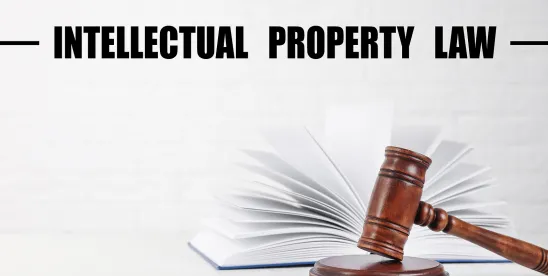In Acorda Therapeutics, Inc. v. Alkermes PLC, the Federal Circuit held that it did not have appellate jurisdiction to review a decision by the district court in the Southern District of New York not to modify an arbitral award of patent royalties. Though the Appellant, Accorda Therapeutics, Inc., presented a first ground to modify the arbitral award based in patent law, its presentation of a second and alternative ground based on contract law effectively undermined the Federal Circuit’s appellate jurisdiction.
Background
Acorda Therapeutics, Inc. developed Ampyra—a treatment for patients with multiple sclerosis. Alkermes PLC owned U.S. Patent No. 5,540,938 (the “’938 Patent”), which covered a sustained-release formulation of the active ingredient in Ampyra.
Beginning in 1998, Acorda and Alkermes formed a joint venture, with the two firms eventually entering into various licensing agreements covering the ’938 Patent. Under these licensing agreements Acorda was obligated to pay Alkermes an 18% royalty on net sales of Ampyra.
The ’938 Patent expired in July 2018 and generic versions of Ampyra then began entering the market. In December 2019, Acorda requested an adjustment to the royalties in light of the ’938 Patent expiring, but Alkermes declined. Acorda continued to pay royalties without protest until July 2020, when Acorda began including an explicit protest with its royalty payments.
Also in July 2020, Acorda filed for arbitration under New York law, pursuant to the arbitration terms of the underlying licensing agreements. In November 2022, after completion of discovery and summary judgment, the arbitration tribunal concluded that, under SCOTUS precedent in Brulotte v. Thys Co., 379 U.S. 29, 30–34 (1964), the underlying license agreements’ royalty provisions were unenforceable upon the ’938 Patent’s expiration.. The arbitration tribunal awarded Acorda recovery of post-expiration royalty payments paid under protest. However, based on New York contract law doctrines barring recovery of payments made with “full knowledge of the facts, even if made under mistake of law,” the arbitration tribunal declined to award Acorda recovery of royalties paid without protest.
In January 2023, Acorda petitioned the district court in the Southern District of New York to confirm the arbitral award recouping Acorda’s royalties paid under protest, and to modify the arbitral award to further award recovery of royalties paid without protest.
Acorda presented two alternate grounds supporting its petition for modification:
First, Acorda argued that the post-expiration royalty terms were in clear derogation of federal patent law under Brulotte, and that SCOTUS had since emphasized that “state laws may not interfere with the federal patent laws by offering ‘patent like protection to the subject matter of the expired patent.’” Bonito Boats, Inc. v. Thunder Craft Boats, Inc., 489 U.S. 141, 152, 165 (1989).
Second, Acorda argued that the arbitration tribunal had correctly determined that the licensing agreements were illegal but then still gave effect to these illegal agreements by denying recovery of post-expiration royalties. Acorda argued this violated fundamental rules of contract law that “no court will lend its assistance in any way towards carrying out the terms of an illegal contract.” Kaiser Steel Corp. v. Mullins, 455 U.S. 72, 77 (1982) (quoting McMullen v. Hoffman, 174 U.S. 639, 654 (1899)).
In August 2023, the district court confirmed the arbitral award but declined Acorda’s request to modify it to include royalties paid without protest. As to Acorda’s first ground based in patent law, the district court reasoned that, while Brulotte stands for the proposition that the underlying license agreements were unenforceable, Brulotte did not address whether already-paid royalties must be refunded. Regarding Acorda’s second ground based in the contract law fundamentals, the district court reasoned that, while the arbitration tribunal did find the underlying license agreement to be illegal, the arbitration tribunal’s decision to limit restitution to payments made under protest did not amount to upholding the illegal agreements.
Acorda timely appealed to the Federal Circuit, and the parties disputed whether the Federal Circuit had appellate jurisdiction. Acorda argued the Federal Circuit had jurisdiction to hear the appeal, while Alkermes argued the Second Circuit had appellate jurisdiction.
Issue
Did the Federal Circuit have appellate jurisdiction over the district court’s decision not to modify Acorda’s arbitral award relating to patent royalties?
Reasoning and Outcome
The Second Circuit—not the Federal Circuit—had appellate jurisdiction over the district court’s decision not to modify Acorda’s arbitral award relating to patent royalties.
The Federal Circuit has jurisdiction over appeals from a district court’s final decision “in any civil action arising under […] any Act of Congress relating to patents.” 28 U.S.C. § 1295(a)(1). The Federal Circuit cited Christianson v. Colt Industries Operating Corp. to explain that an action can be found to “arise under” federal patent law under two scenarios:
(a) federal patent law creates the cause of action, or
(b) “the plaintiff’s right to relief necessarily depends on resolution of a substantial question of federal patent law, in that patent law is a necessary element of one of the well-pleaded claims.”
486 U.S. 800, 808–09 (1988).
The Federal Circuit noted that SCOTUS views scenario (b) as a “special,” “small,” and “extremely rare” exception to the general requirement that federal law creates a federal court’s cause of action. Gunn v. Minton, 568 U.S. 251, 257–58 (2013).
Citing Gunn, the Federal Circuit explained that to meet this “extremely rare” scenario (b), the case must involve a federal patent law issue that was ‘(1) necessarily raised, (2) actually disputed, (3) substantial, and (4) capable of resolution in federal court without disrupting the federal-state balance approved by Congress.’” 568 U.S. at 258. In other words, where federal law did not create a cause of action, the case may nevertheless “arise under” federal patent law where all of the four Gunn inquiries are satisfied.
Looking at the face of Acorda’s original petition to the district court, the Federal Circuit quickly ruled out situation (a). In the Federal Circuit’s view, it was “plain and undisputed” that federal patent law did not create the cause of action underlying Acorda’s original petition. The Federal Circuit elaborated that Acorda’s petition was brought solely under the Federal Arbitration Act, and was “not, for example, [] an infringement suit stayed pending arbitration.”
Turning to situation (b), the Federal Circuit pointed out that Acorda’s petition failed the first Gunn inquiry, i.e., that the case must involve a federal patent law issue that was “necessarily raised.” Acorda had presented two alternative grounds as establishing manifest error—the first resting on federal patent law forbidding post-expiration patent royalties (per Brulotte) and the second resting on contract law forbidding enforcement of illegal contracts (per Kaiser Steel and McMullen). The Federal Circuit reasoned that Acorda’s second ground, based in contract law—and not patent law—showed there was a way for the district court to rule in Acorda’s favor on the requested recoupment of post-expiration royalty payments without resort federal patent law. Thus, Acorda’s first ground, based in patent law, was not “necessarily raised.”
Because Acorda’s petition was not based on a cause of action created by patent law, and because the petition further failed the first Gunn inquiry, the petition did not “arise under” federal patent law. As such, the Federal Circuit held that it lacked jurisdiction over Acorda’s appeal. Accordingly, the Federal Circuit transferred the case to the Second Circuit Court of Appeals.



 />i
/>i

